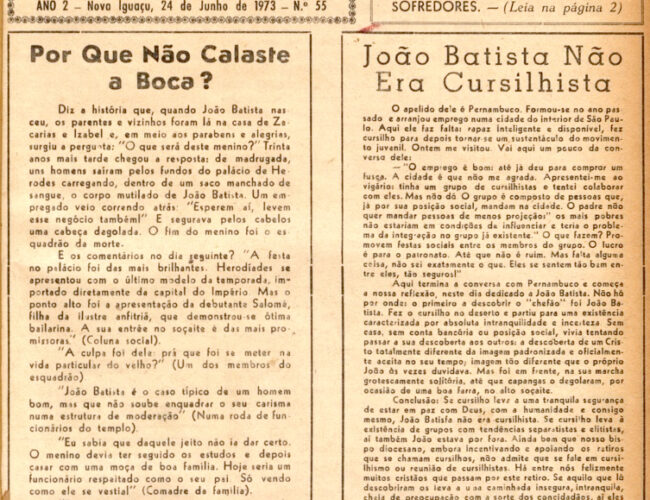Digitization of the Diocesan Curia of Nova Iguaçu’s (Brazil) Archive
Throughout the 1940’s to 2015, the Archive of the Diocesan Curia of Nova Iguaçu (ACDNI) has accumulated a rich collection of the documents that record the activism of the Brazilian progressive Catholic Church, including their support towards the working class, known as the Baixada Fluminense.

| This project works to digitize selected collections from the Archive of the Diocesan Curia of Nova Iguaçu (ACDNI), a center of Brazil’s progressive Catholic Church during the military dictatorship (1964-1985). The collection is comprised of 475 linear feet (145 linear meters) of printed materials that document not only ecclesiastical matters, but also the social struggles of the working-class suburbs of Rio de Janeiro known as the Baixada Fluminense, social movements in the region, resistance to authoritarianism, and liberation theology. |
Project Details
Location: Brazil, South America, Americas
Organiser(s):
Modern Endangered Archives Programme (MEAP)
Project partner(s): Instituto Enraizados;
Archive of the Diocesan Curia of Nova Iguaçu (ACDNI)
Funder(s):
Arcadia
Funding received: $50,000
Commencement Date: 11/2021
Project Status: Active
Project owner? Update this project
